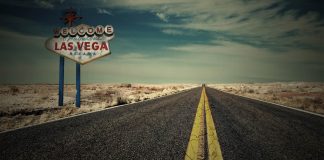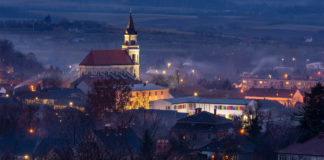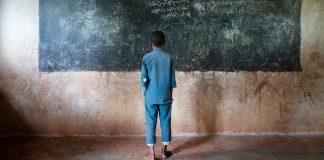Returning to the blessing of the small things
Rediscovering the blessing that resides in the little things of life has been one of the challenges of every season I've lived through. This is the conclusion I always come to when I take a moment to reflect.
One habit healthier. What we need to know about change
Let him that would move the world first move himself. – Socrates
How well do you know your heroes?
In 2016, I noticed advertising for a new quiz show called Hard Quiz coming to ABC TV in Australia.
How can I become authentic?
"Suppose I go to the Israelites…and they ask me, ‘What is his name?' Then what shall I tell them? God said to Moses, 'I AM who I AM. This is what you are to say to the Israelites: I AM has sent me to you'" (Exodus 3:13-14).
The rescue at the end of the railway track
The days that we don’t see the suffering of others are few. We have learned to let our feelings of helplessness wipe our conscience and we move on, forgetting that we are not required to heal the suffering of all mankind, but to do the best we can, every day, with what we have available to us. In the case of Norma Romero...
Love doesn’t give up, regardless of the prognosis
Lace-edged rumours wafted through the student campus in Sagunto, Spain: Devin, one of the American boys who had come to Spain for a year of study, was dating Teresa, a second-year theology student who was hard to miss. Her striking beauty and cheerful nature attracted gazes like a magnet. No one suspected then, not even the protagonists of this relationship, that their love...
COVID-19: How to stay positive and balanced
Our reality isn’t always a calm place. Feelings of safety and peace that are so necessary for our well-being often elude us. What is happening today on a global level only goes to show how fragile our world is, and how easily we can lose control over the things we thought we had mastered.
“Beyond the Burden of Proof” documentary. Are we made to believe?
In the centuries since science has gained autonomy from religion, spokesmen on both sides have grown accustomed to looking at each other with suspicion, ignoring each other, and addressing their followers by preaching against the “others." There seemed to be little hope that scientists and people of faith would listen to each other and try to develop a common language, if not a...
When one cries, the other tastes salt
Right at the start of the political thriller, The Post, a scene portrays military analyst Daniel Ellsberg with an empty gaze and a soul burdened by the horrors of the Vietnam war he was forced to document for the United States Department of Defense.
Beyond the fish and the fishing line
"Like slavery and apartheid, poverty is not natural. It is man-made and it can be overcome and eradicated by the actions of human beings… And overcoming poverty is not a gesture of charity. It is an act of justice." (Nelson Mandela)[1]
Norma Nashed | Poverty made her a mother to thousands of children
Norma Nashed has been running the Restore a Child organisation for more than two decades, helping 4,000 children in ten African countries.
The journey from the classroom to the real world
Given that my guest, John Satelmajer, holds a respected position at one of the world's largest financial companies, PricewaterhouseCoopers, I expected him to say that he attended the best schools. In a way, he did. Which ones? What shaped his success in life? That is the subject of our discussion.
The myth of more
In the late 1980s, Donald Trump was asked how much money it would take to make him happy. His answer? “Ten per cent more.”
COVID-19 after vaccination: How much does vaccination protect us?
Why can vaccinated people still get COVID-19 or even die from the disease?


























